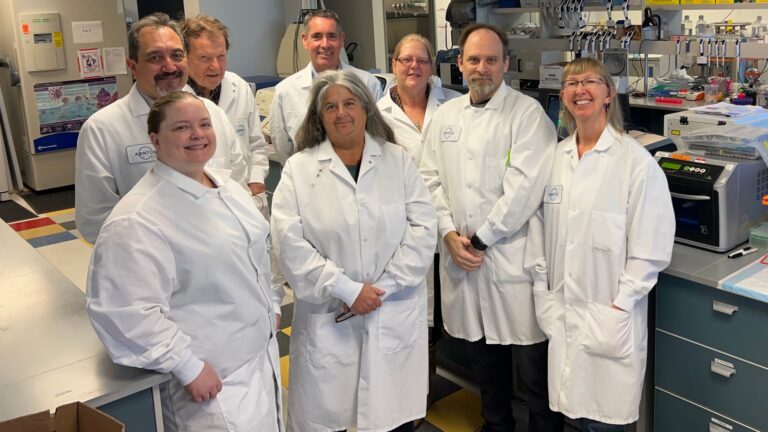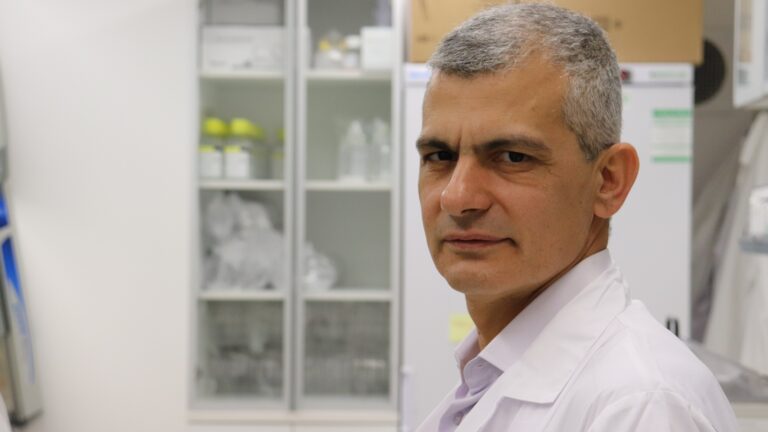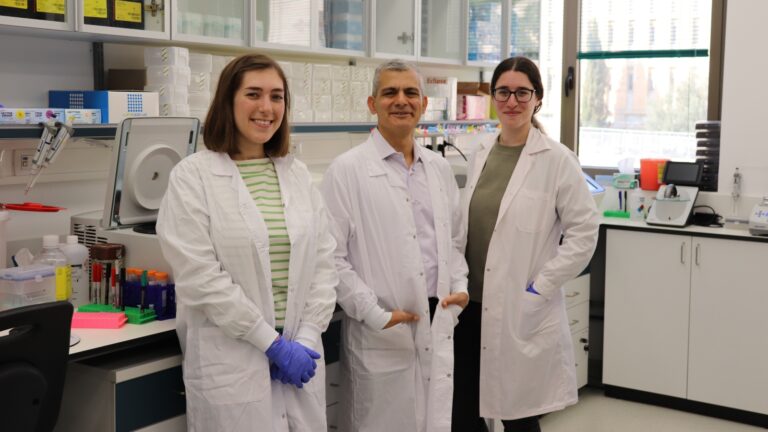In many cases, cancer forms when the body’s immune system isn’t working properly. Immunotherapy seeks to restore the defective system’s ability to kill cancer cells.
A typical immunotherapy technique involves an expensive, time-consuming and technically challenging procedure of extracting specific immune cells from the patient, engineering them, and injecting them back into the bloodstream. It must be done from scratch for every patient. And it doesn’t always work.
A California startup called Abintus Bio has a better idea: An off-the-shelf genetic drug that locates specific immune cells inside the body and engineers them — with therapeutic genes using synthetic biologic switches — to identify and kill cancer cells.
The name of the company is from the Latin ab intus, “from within.”
“This is a huge breakthrough, a type of immunotherapy built on decades of advancements that our founders and others in the field have done,” says Abintus President and CEO Nicholas Boyle.
“The simplicity of this method would reduce costs dramatically and has the potential to improve overall safety and patient outcomes.”

While setting up Abintus Bio in mid-2020, the founders searched for a world expert to design the exacting technology to make multiple changes to cells inside the body – somebody who also shared their feeling that this is a calling as much as a business.
And that’s why the company appointed Hebrew University assistant professor Lior Nissim as head of synthetic biology.
“I think like an electrical engineer, but I went into biology because my mother died of cancer when I was three years old.”
When he was a PhD student at the Weizmann Institute of Science, Nissim engineered the very first gene circuit for precisely targeting cancer cells. During his postdoc at the Massachusetts Institute of Technology, his team engineered RNA-based gene circuits for cancer immunotherapy.

“Israel has always been on the leading edge of immunotherapies,” says Boyle, adding that Israeli professor Zelig Eshhar was one of the early pioneers in this field.
“When we looked for this type of technology, we spoke to multiple groups. It became clear that joining forces with Dr. Nissim’s lab could enable our clinically proven delivery vehicle to activate therapeutic genes where they should. The work he has been doing over the past decade was perfect for this goal.”
A life mission
Nissim tells ISRAEL21c he wasn’t meant to be a biologist.
“I think like an electrical engineer,” he says, “but I went into biology because my mother died of cancer when I was three years old, and I have been on a mission ever since to cure cancer.”
Thinking like an electrical engineer turned out to be an advantage in building a genetic circuit.
“To program the immune cells inside the body, you need to give the ‘order’ to the right cells — you need to say, ‘You guys and only you guys!’ This is my specialty. I look at cells like a set of switches that we can program,” Nissim explains.
Introduced into the body via an injectable genetic drug, his synthetic markers allow the drug to sense precisely which immune cells need to be programmed to kill cancer.
“I brought the Waze, and Abintus brought the vehicle. It simply clicked,” says Nissim.
“We are looking to engineer the patient’s own immune cells to correct defects that enabled cancer to grow, but in certain applications we need the technology to specifically engineer the cells we’re interested in — and that’s where Dr. Nissim’s lab comes in,” says Abintus Chief Scientific Officer Derek Ostertag.
“He’s done pioneering work in synthetic biology that gives us those additional tools to make our engineering accurate to the cell types we want.”
By engineering multiple components of the immune cell, Abintus’ approach could boost the success rate of immunotherapy because, says Ostertag, “it’s not dependent on a single aspect of the immune system as a lot of current therapies are.”
Not for current patients
Abintus has raised over $14 million from investors including Takeda Ventures and the Leukemia & Lymphoma Society’s Therapy Acceleration Program. In connection with Nissim’s innovative synthetic biology platforms, Abintus has entered a research and option agreement with Hebrew University’s tech-transfer company, Yissum.
The company, which employs seven full-time workers in San Diego, aims to find a commercial partner and begin clinical trials for its synthetic biology program within a few years.
“This will take time,” cautions Nissim. “We are trying to start clinical trials as soon as possible but I’m sorry to say we cannot help people who are sick now.”

He says the Abintus approach to reprogramming cancer-fighting cells is “semi-personalized.”
“If a medicine is too personalized, you can treat only a few patients with one batch of medication. If I can find something in common to all patients, we could treat thousands of patients with one batch,” says Nissim. “We can have different versions of the drug for different types of cancer, all of them designed to be safe, effective and affordable.”
The same technology targeting cancer immune cells inside the body could be translated to genetic drugs for other conditions.
For example, immune cells that go haywire and start attacking the body, causing autoimmune diseases, could be programmed to calm down, Nissim says.
But oncology is where Abintus wants to start.
“For all of us, this is not just a business but a mission to save lives,” says Nissim. That’s why I work with the Abintus team so well.”
For more information, click here.

















